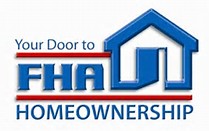FHA loans present a viable borrowing alternative to conventional loans for potential home buyers. Congress established the FHA in 1934 during the Great Depression as a way for lower income borrowers to purchase a home. The FHA became part of the Department Of Housing And Urban Development in 1965. FHA loans are mortgages insured by the Federal Housing Administration (FHA). The FHA is not a lender, but an insurer. Because of their relaxed restrictions, they can sometimes offer borrowers a path to home ownership that a conventional loan may not.
When looking at loans, you may want to consider an FHA loan to avoid the more stringent requirements that often come with conventional mortgages. Since the FHA insures the loan lenders are able to loosen the qualification requirements since they are no taking on the risks associated with a borrower defaulting. A conventional lender will demand a higher credit score, larger cash down payment, and a lower debt to income ratio.
You should consider a FHA loan if:
You Have Less Than A 5% Down Payment
FHA loans require as little as 3.5% down.
Your Credit Score Is Less Than Perfect
If your credit score is less that 620 an FHA loan may be the most viable option for you. In some cases lenders will consider a credit score as low as 580. If your credit score is below 580 a 10% down payment is required.
You Are Funding Your Down Payment Entirely Via Gifted Funds
FHA guidelines allow for 100% of your down payment to be gifted. Conventional loans cap the amount of gift money that can be used as a down payment.
Your Debt To Income Ratio Is High
Your debt to income ratio (DTI) is a major determining factor in how much you can borrow. DTI is the sum of all of of your monthly debt payments divided by your monthly income. The FHA is much more lenient on maximum DTI ratios. The DTI for an FHA loan is typically 45%, but can be as high as 50% in some cases. Conventional DTI ratios carry a DTI maximum of 43%.
You Have Had A Foreclosure Or Short Sale In Your History
FHA guidelines are much more lenient than conventional loans with respect to the waiting time prior to applying for a loan following a foreclosure, short sale, or deed in lieu of foreclosure by a potential borrower. The period following the discharge of a foreclosure and a new FHA application can be as little as 3 years as opposed to 7 years for a conventional loan.
Wallingford PA Real Estate – Wallingford, PA 19086


